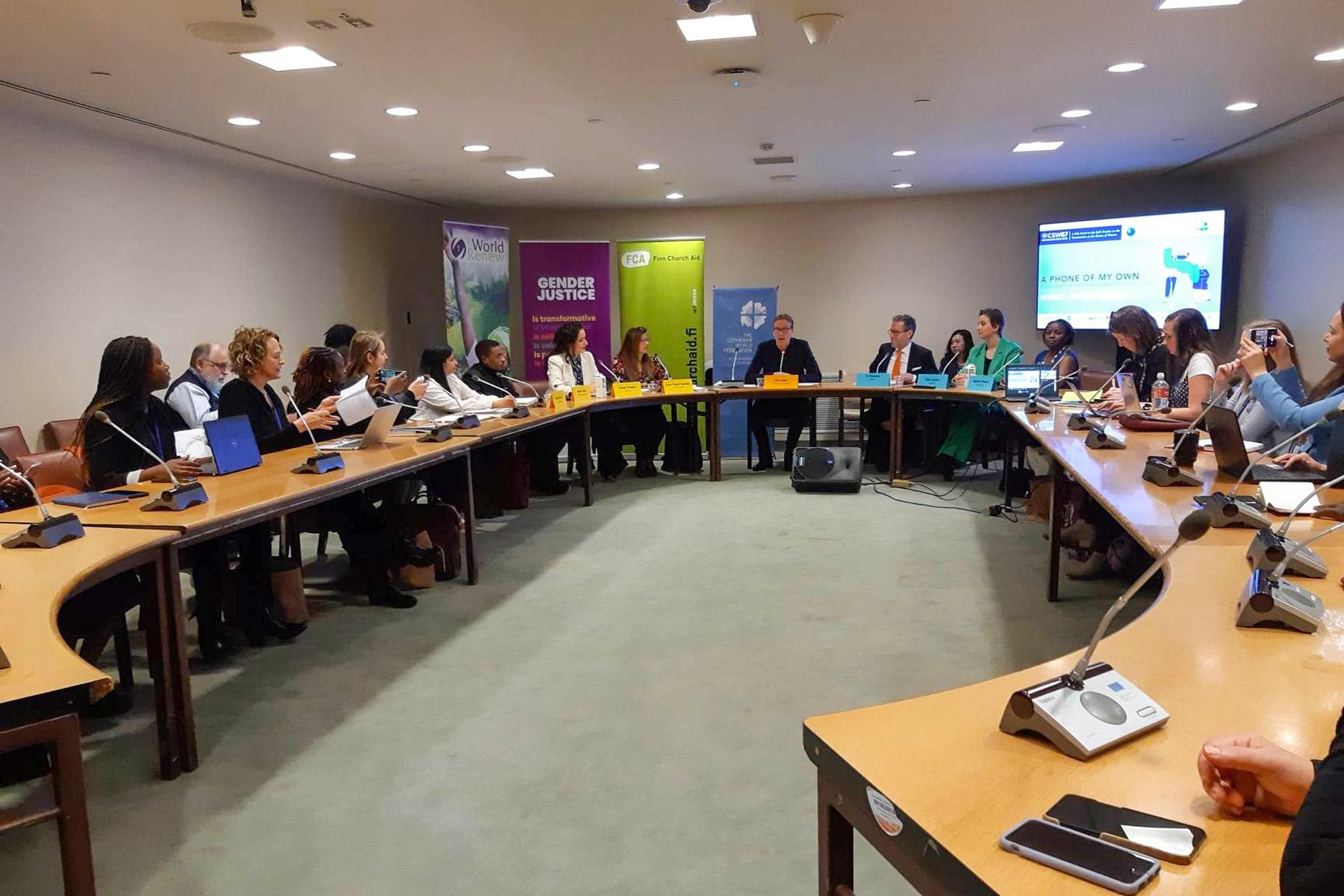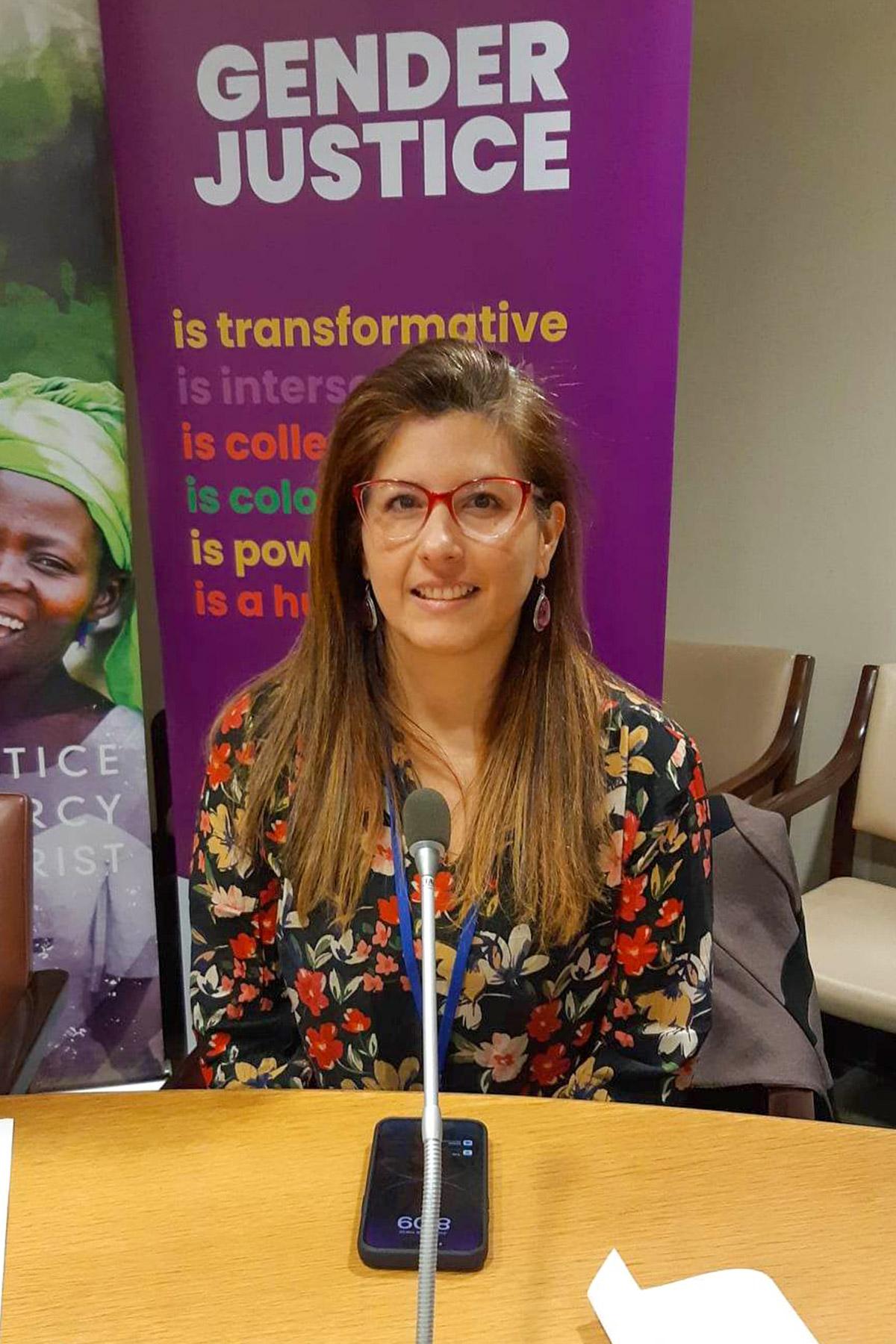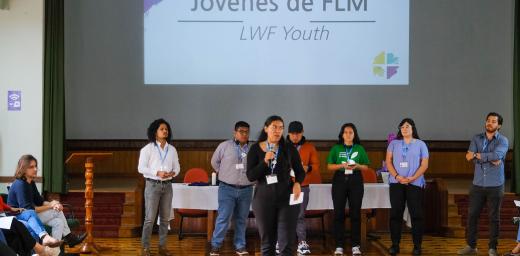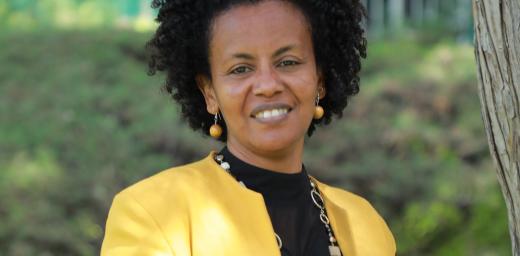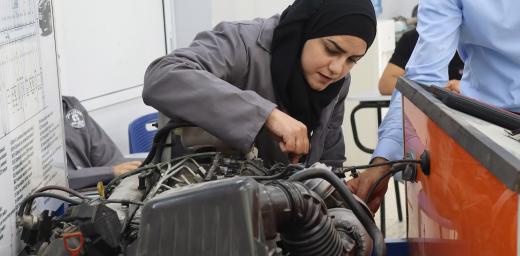‘Together we save lives’
Speaking of LWF’s work with five women’s organizations in the Department of Chocó on Colombia’s Pacific coast, Chacón said local groups identified some of the most vulnerable Afro-Caribbean and indigenous women who were given mobile phones with data plans to reduce the risk of femicide and violence. The initiative, entitled ‘Together we save lives’, also provides computers and training for local groups to document and denounce abuses, as well as accessing resources to find shelters for survivors.
Deepti Bharthur, senior research associate with IT for Change in India, highlighted the importance of “meaningful access to mobile phones,” so that women and girls have the tools and knowledge to enable them to navigate safely online. In rural south-east India, her organization is working with young girls to share knowledge and build leadership skills in order to challenge traditional gender norms.
Bharthur shared an example of girls who took photos of broken streetlamps in their rural village to demand greater protection from local authorities. In urban areas, IT for Change works in schools, empowering girls to deconstruct traditionally sexist or discriminatory language. Girls also produce their own radio programs, providing safe spaces for them to voice their concerns, share solutions and learn about support services for survivors of rape and violence.
Combating a culture of patriarchy in church and society
Busani Lunga, a young gender activist with the ACT Alliance Forum in Zimbabwe, spoke of the enduring culture of patriarchy in his country. Zimbabwe, he noted, is a predominantly Christian country, meaning it is vital to address gender violence in the churches as well as within wider society. High levels of unemployment and the common practice of child marriage, especially in rural areas, add layers of intersecting challenges for those working to empower women and girls.
Maryam Torosyan, creator of a mobile phone application called ‘Safe You Armenia’ talked about the way it has been developed for users in neighboring Georgia and Iraq. The app is available in nine languages to include minority groups in those countries and can also be adapted for use by people with visual and speech impairments.
The platform provides access to emergency assistance for women who are vulnerable to violence and requires a two-step security code, making it harder for others to open the app. It also offers safe spaces for peer discussions and access to professional service providers and even the police, where necessary.
Also taking part in the discussion was Liberia’s Minister for Gender, Children and Social Protection, Williametta Saydee-Tarr, who encouraged other governments and partners to invest in education and the empowerment of women. She noted that her government has funded a helpline which operates 24/7 offering support to survivors of gender-based violence and other emergencies, but she also pointed out that only 47% of women in her country have access to a mobile phone.
Ib Petersen, deputy executive director of the UN Population Fund, spoke of the services that his agency provided to women in remote areas of Brazil, Myanmar and the Philippines during the COVID-19 pandemic which exacerbated violence against women, especially in minority communities. He called on governments and tech companies “to set up legal and policy frameworks to ensure girls and women can access digital services and information without fear of harm.”
Katri Jalonen, a gaming specialist with Finland’s Generation Equality youth group and member of the Finnish CSW delegation, said most young women have experienced harassment online and often silence themselves, “as women and girls have done throughout history.” Cyber safety “cannot simply be the responsibility of individuals,” she insisted, urging governments, legislators and tech companies to take concrete steps to close the digital gender gap and eradicate all forms of cyber violence against women and girls.


